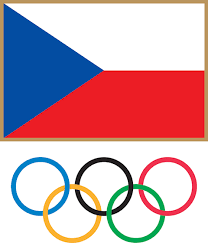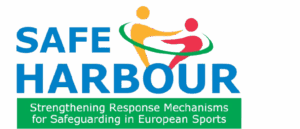The Czech Olympic Committee (NOC Czechia) is pleased to be a partner in the new Erasmus+ Project named “Strengthening Response Mechanism for Safeguarding in European Sports” (SAFE HARBOUR), which is coordinated by the European Olympic Committees EU Office (EOC EU Office). This initiative is dedicated to enhancing safeguarding mechanisms across European sport, creating safer environments for all.
About NOC Czechia

NOC Czechia was established on 18 May 1899 with the aim to develop, promote and protect the Olympic movement and its ideals, and to ensure the participation of National Team’s athletes to Olympic events. It operates nationally and internationally in accordance with the Olympic Charter and with the applicable laws of the Czech Republic. In its structures, NOC Czechia unites sport federations, associations and other sport and physical education organisations of the Czech Republic; however, it is not a confederation.
In its projects, events and activities, it promotes sport as a lifestyle and strives to make it accessible for all. It tries to contribute to building a stronger civil society and reinforcing social cohesion, including through the promotion of Olympic values. Equal Opportunities Commission of the Czech Olympic Committee coordinates its activities pertaining to equal opportunities and gender equality.
The work of NOC Czechia on safeguarding in sports to date
The topic of safeguarding in sport has been already an important topic for the NOC Czechia for several years. In 1996 the NOC leadership established the Women’s Commision. The Commission cooperated with the Norwegian University of Sport in Oslo, where Prof. Kari Fasting has been based. She was the head of the project Women and Sport in the Czech Republic, which was implemented in the period 2001 - 2004 and where her team also focused on uncovering the prevalence of sexual violence in czech sport community.
In 2012 the position of Ombudsperson for Czechia NOC was established and he has been active since this date in managing various concerns of the NOC members. The position is elected by the General Assembly for the duration of 6 years.
The safety and wellbeing of athletes have become more and more important, therefore in 2024 NOC of Czechia appointed its first safeguarding officer for the Olympic Games in Paris.
Since 2023 the topic of safeguarding in sport has been introduced to the participants of national youth Olympic Games through awareness posters and since 2025 also through a handbook.
The role of NOC Czechia within the SAFE HARBOUR project
Within the SAFE HARBOUR project, NOC Czechia will play a critical role in tailoring the European Response framework to its national context. Responsibilities include drafting a National Strategy to guide safeguarding actions, delivering mandatory training for the leadership and National Federations, and hosting a National Multiplier Event to raise awareness among stakeholders. Additionally, NOC Czechia will engage in peer-to-peer roundtables, contribute to thematic seminars, and disseminate the project results through various channels. By actively participating in all project activities, NOC Czechia will help ensure the successful implementation and sustainability of safeguarding measures.
Background information on the SAFE HARBOUR project
The SAFE HARBOUR project, short for “Strengthening Response Mechanisms for Safeguarding in European Sport”, is a 30-month project co-funded by the European Union through the Erasmus+ Sport Programme 2024. Coordinated by the EOC EU Office, the consortium includes Thomas More and Asser Institute as experts on safeguarding, human rights and law, 2 International Federations (International Biathlon Union and International Ice Hockey Federations), and 20 National Olympic Committees (Belgium, Bosnia and Herzegovina, Croatia, Cyprus, Czechia, Denmark, Germany, Hungary, Kosovo, Latvia, Lithuania, Luxembourg, Malta, Montenegro, Norway, Poland, Portugal, Romania, Slovakia and Slovenia). Additionally, the International Olympic Committee (IOC) is involved as an outside resource.
The project seeks to strengthen the capacity of European NOCs and Federations to address safeguarding concerns by identifying gaps, developing a European Response framework, and fostering collaboration. This framework will be adapted to national contexts, complemented by training and awareness initiatives to enhance safeguarding measures at both national and European levels. Therefore, SAFE HARBOUR aims to equip partner NOCs and Federations with the tools and confidence to implement effective safeguarding measures while establishing a robust support network for Safeguarding Officers and laying the groundwork for a future IOC Regional Safeguarding Hub.

![]()